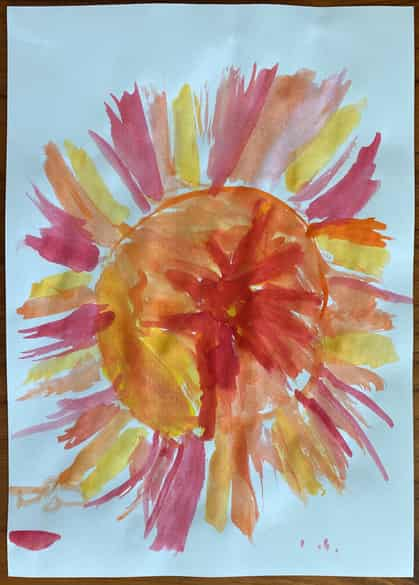
As soon as the government announced that we would be starting the school year online I could feel dread from parents and teachers alike. As an Early Years educator who has a four year old, a five year old, and a husband who teaches as well, I can concur– the dread is real. But the dread isn’t where the online education story has to end.
It has been a challenge having to explain to our children that they won’t be able to see their friends and teachers in person while also trying to plan and create the most welcoming and productive online class environment for five year old students. Online learning challenges us all.
Online learning calls for flexibility, empathy– connection not perfection
My goals as a teacher during covid times are pretty simple: keep the children happy, healthy, and connected, while not adding undue stress to families who really don’t need it right now. I try to achieve this by adjusting my own expectations, shifting my perspectives as a mother, as a teacher, and focusing on being flexible and empathetic. The larger goal now is to get through this together. It’s not always easy, not always pretty, can’t be done without a lot of coffee, but we persevere, and so do our young people. Challenges are an opportunity for growth.
All of a sudden parents, or in many cases grandparents, are now expected to be IT gurus in the home in order to facilitate online learning. Are your older relatives ‘digital natives’? How tech savvy is Grandpa, anyway? Can any of us remember a time before Zoom? Online learning asks us to become a master of scheduling, a full time teacher and teacher assistant, and a technology facilitator. When the classroom is on the computer we are also asked to take care of our children’s emotional well being as well– so add school counsellor to your list of roles. The promise of technology was convenience, easy communication, more time– but in these times that promise can seem unfulfilled. And then it all repeats the next day. The online learning challenge can feel relentless to all involved.
Experiences, even pandemic experiences, are still the best teacher
By August 2021, now well into this pandemic, we know this pace may lead to some meltdowns (minor and major) and signs of burnout for some, or all, in the family. Old and young are challenged by this moment in time but there is comfort in knowing we are having a shared experience– and experience is the best teacher. Resilience isn’t necessarily on the online learning lesson plan (where do we find that link again?)– but we are all learning to be resilient.
As a mom and a teacher these are my tips:
(1) Create a space in your home that is designated for online learning. Remove distractions and ensure your child knows that, for now at least, this is their classroom. Learning in this space becomes a habit, habit becomes routine– routines are good for children.
(2) Have a daily schedule of all of your child’s learning, activities, breaks, digital classroom
meetings, free time, meals, bedtime preparation, and bedtime. You can make this schedule with your child. The goal is the routine, a regular daily practice, not perfection.
(3) It may sound simplistic but don’t sweat the small stuff. If your child refuses to face the screen or actively engage in a digital class, it’s okay, it happens to all of us. Small children are not meant to sit still for too long. The ideal learning environment is not online but let’s just all agree to put ‘ideal’ aside for just a little while longer.
Online education can be a challenging journey but this road can bring unexpected joys
Although we are in very uncertain and often frustrating times, as an early years teacher, I try to create a home learning environment that allows children to engage with learning and stay connected to their peers and school life routines. I want parents to choose activities they feel comfortable with to guide their children with confidence. This type of planning takes a lot of thought and time because at our school it is zoomed through our Reggio Emilia and IB curriculum frameworks (add more coffee!).
Despite our shared struggles, hopefully some extra cuddles reading together, baking sweet treats, enjoying some exercise through dance and yoga, and exploring creating various types of arts and crafts will allow for some special moments of learning and bonding at home. Living through a pandemic can have some unexpected positive outcomes too.
Don’t worry about your child ‘falling behind.’ Who/What exactly is your child ‘falling behind’?
Parents, please remember to be kind to yourselves as well. We see all the hard work you are doing and we thank you. Please know that you can lean on your children’s teachers and school leaders, and know that it’s much easier to get through this if we work together with flexibility and empathy for our little learners and for ourselves too. Don’t worry about your child ‘falling behind.’ Who or what exactly could your child be ‘falling behind’? Students in schools all over the world have been affected by this disruptive pandemic and we’re all a little behind but we’re all capable of adjusting our expectations to meet this moment with empathy and renewed purpose.
Ultimately online learning asks a lot of all involved but it’s not all bad. With stable Wifi, and lots of coffee, we can break through the initial dread to enjoy some of the fruits of the ‘learning’– (if perhaps not all of the ‘online’.) even if, for the time being, that does remain online.
